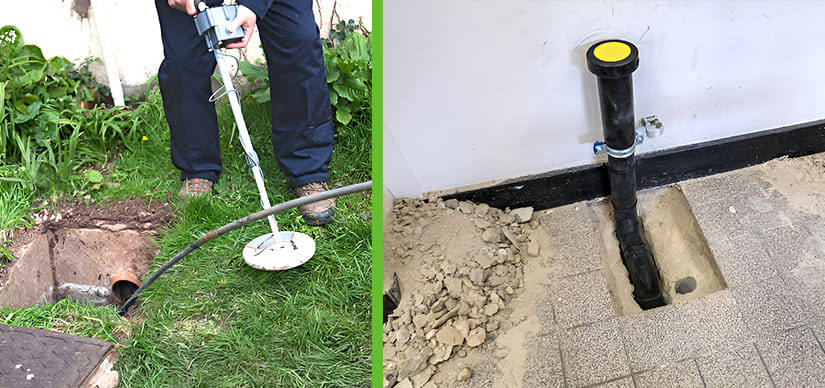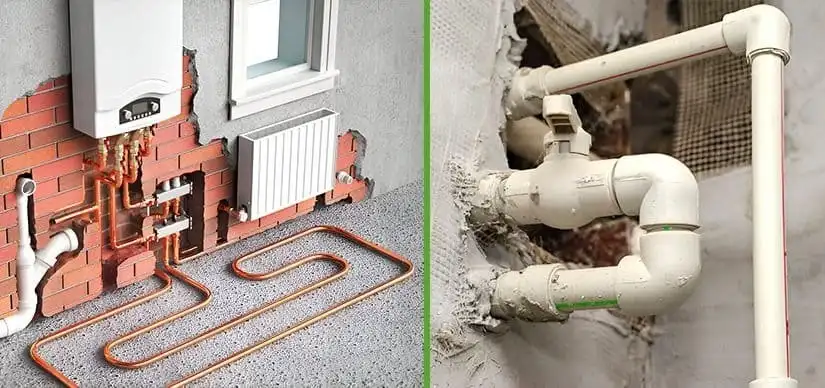How Slab Leaks Affect Your Water Bill and What You Can Do About It
Views : 1041

Introduction
Has there been a recent, apparent increase in your water consumption bill? Are you having problems figuring out where the increased usage is coming from? Is there a silent drain on your financial resources and water supply simultaneously occurring in your home? One potential reason that many homeowners overlook is slab leaks. However, what precisely does slab leak refer to and how can it affect your water bill so drastically? Above all, what action can you take to prevent it from escalating into larger issues?
The solutions to these questions and how leaky slabs can silently wreak havoc on your house and finances will be discussed in this article, along with practical steps you may take to address slab leak detection in Orange County.
Factors Causing Slab Leaks
Slab Leaks’ Effect on Your Water Bill
Your water bill is one of the biggest and most noticeable effects of a slab leak right away. How to do it is as follows:
1. Constant Water Flow
Water continues to flow from slab leaks regardless of whether all taps and devices are turned off. Your water usage may rise significantly as a result, raising your water bill. More water is lost as long as the leak remains undiscovered.
2. Secondary damage
If a slab leak is not discovered right away, it can cause serious structural damage. Greater amounts of water drip into the building’s foundation, if longer the issue is ignored. This potentially leads to structural instability by weakening the base. This may require expensive slab leak repair in Orange County or possibly put your safety in danger.
How to Spot a Slab Leak
Early slab leak detection in Orange County is essential to reducing the leak’s effect on your water bill and averting additional home damage. Take a look at these indicators:
1. Inexplicable Water Bill Increase
It may indicate a slab leak if your water bill has increased unexpectedly without you using more water.
2. Warm Areas on the Ground
Warm spots on your floor could be a sign that there is a leak in the warm water pipe beneath your slab.
3. Wet Spots or Water Stains
Water stains or damp patches on your carpet or floor may indicate a slab leak, particularly in places without plumbing fixtures.
4. The sound of water flowing
Even though all of the taps are off, the noise of running water may indicate that water is seeping beneath your slab.
5. Insufficient Water Pressure
Decreased water pressure may indicate a slab leak or a leak in another plumbing system.
How to Handle Slab Leaks
Verify the Leak
Make an Expert Plumber Call
3. Choose the best Technique for slab leak repair in Orange County
Your plumber will advise on the most appropriate action after locating the leak. Among the most used repair techniques are:
Spot repair: This entails drilling a hole through the floor’s concrete to reach the damaged pipe segment and fix it. When a leak is contained in a small area, this is typically done.
Repiping: In certain situations, rerouting another pipe over the slab may be a more economical option than completely replacing the damaged pipe.
Pipe Lining: By putting a fresh lining inside the old pipe, a leak can be successfully sealed without requiring a lot of excavation work.
4. Pay attention to your water bill
5. Setting up a water softener
Final Takeaway
Unknown risks that can cause serious damage to your house and finances are slab leaks. These sneaky leaks frequently go unnoticed until significant harm has been done. You can drastically lower the cost and structural damage related to slab leaks by being aware of the early warning indicators and acting quickly. To avoid a minor issue becoming a costly calamity, early slab leak detection in Orange County is essential. Frequent upkeep and checks can help stop leaks in the future, keeping your house secure and your water costs in check.
Do not delay if you fear a slab leak. Make quick contact with EZ Plumbing for slab leak detection in Orange County to avoid needless damage to your house and finances.




